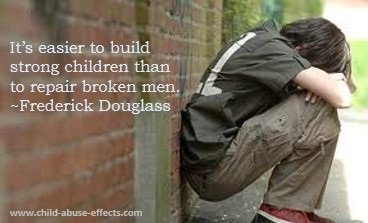Headline 5:
Is religious education a form of child abuse?

Headline 5: Religion violates the rights of children, according to Innaiah Narisetti, chairman of the India chapter of the Center for Inquiry. Narisetti will present a thesis that will be deliberated in October (2007) at the CFI's congress in Beijing. He will argue that religious education is a form of child abuse.
|
Narisetti contends, "Such abuse begins with the involuntary involvement of children in religious practices from the time they are born." He goes on to say, "All religions, through ritual, preaching, and religious texts, seek to bring children into day-to-day religious practice."
Narisetti suggests that the time has come for the United Nations to set limits on how early religious institutions should have access to children. |
|
Comments to Headline 5:
When I read the complete article on this child abuse headline, I knew I wanted to address it, but I've struggled for over a week on how to proceed without offending, in one way or another, virtually everyone on the planet.
You see, I believe Mr. Narisetti has a point. Children are being legally brainwashed every day under the guise of freedom of religion. But to claim that ALL religions violate the rights of children in one form or another and therefore constitutes child abuse is a dangerous declaration. Especially when such a declaration would put the United Nations in charge of assessing religious practices and setting limits on how early organized religion should have access to children.
Let's assume the United Nations does take over setting religious limits . . . what then? These are the problems with Mr. Narisetti's suggestions, as I see them:
- The worst offenders of abusive religious practices of children often times come from countries that have never signed, and never will sign, a declaration with the United Nations. These children would continue to be indoctrinated and a form of child abuse would continue to be perpetrated.
- The United Nations is a governing body that puts the onus on individual governments to follow their guidelines. But other than sanctions, the UN has very little power to keep these governments in check. And even with sanctions, some countries don't care. How would that help children?
- Religious beliefs are a force to be reckoned with. When people believe in something strongly, they will find a way to practice those beliefs. If governments dictate what are and are not acceptable religious practices that involve children, it would create an underground of religious practices by parents. Better to have the practices open for all to see. At least then, in civilized countries, if the safety of children is compromised, there are laws in place to help protect them.
I believe Mr. Narisetti's heart is in the right place when it comes to child abuse. But his suggestions lack realism. To have the United Nations, and therefore, individual governments, in charge of determining acceptable religious practices of children rather than parents is to move one step closer to Big Brother.
Headline 5 originally posted June 29, 2007
References
NOTE: Information pages on this site were based on material from the
 Canadian Red Cross RespectED Training Program. Written permission was obtained to use their copyrighted material on this site.
Canadian Red Cross RespectED Training Program. Written permission was obtained to use their copyrighted material on this site.
From Victim to Victory
a memoir
How I got over the devastating effects of child abuse and moved on with my life
From Victim to Victory
a memoir
How I got over the devastating effects of child abuse and moved on with my life
Most Recent
-
Converging Stolen Lives
Jan 30, 18 01:13 PM
There was a time and space I didn’t think about you, or your abuse. Where when I looked back at my life, I only saw normal things, a normal childhood. -
A letter to one of the 13 Turpin children
Jan 29, 18 11:33 AM
A heartfelt letter by a former classmate that speaks to bullying and regrets. You'll find it on my Facebook group. I hope you'll join and get in on the discussion. -
Dissociated From Abuse
Jan 29, 18 11:00 AM
I was sexually abused by my father from age 6 to 13, which stopped when I started talking about it during the day. The teenage brother of my best friend


